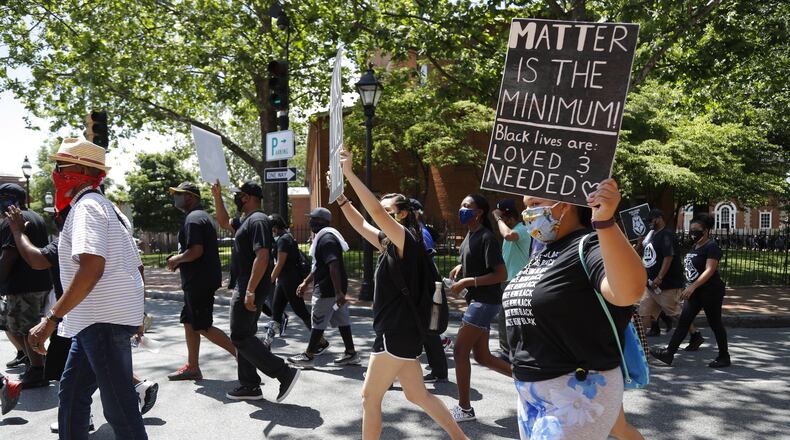Palilalia is defined as a speech defect marked by abnormal repetition of syllables, words, or phrases, often with increasing rapidity and decreasing volume. For example, a person with palilalia might say that black people have no rights which the white man is bound to respect. Or that Asians are dangerous aliens who should be confined to concentration camps. Or America needs more people from Norway - and not from (expletive)-hole countries. While the exact cause of palilalia is unknown, it presents in a variety of neurodegenerative disorders. And it seems that many U.S. presidents, including the present one, exhibit this affliction when it comes to race – repeating dangerous words and a deadly past.
This particular American strain of palilalia is not new. It stretches back before the establishment of the Republic unto the present. But from the Stono Uprising of 1739, to the American Revolution of 1776, to Nat Turner’s rebellion of 1831, to John Brown’s crusade at Harpers Ferry in 1859, to the Civil Rights movements from the 1860s through the 1960s, to the revulsion against black killings of 2020, Americans have always sought to free themselves from oppression. We have constantly fought against yokes, bars, chains, handcuffs, or disposable zip ties. Our love of freedom runs deep and counter to the virus of racism bequeathed to us before the nation was even born. Notwithstanding, too often and seemingly at the ready are old tropes and race-baiting incantations that awaken and activate race hatreds. And too often, our leaders repeat (palilalia-like) these tropes and incantations.
Surnames become verbs and symbols of racial abuse – Scott, Korematsu, Till, King, Rice, Taylor, Arbery, and Floyd. Just as the televised news revealed the brutality towards civil rights activists seeking redress in the 1960s, cellular telephones have laid bare the present savagery and racial unfairness. Dred Scott thought he had escaped to freedom; Fred Korematsu thought he could live where he wanted; Rev. Martin Luther King Jr. thought nonviolence was the answer; Breonna Taylor thought she was safe in her own home; Ahmaud Arbery thought he could go for a jog; and George Floyd thought he could buy a pack of cigarettes. And maybe Emmett Till could have grown up to be a Central Park ornithologist? Or maybe Tamir Rice could have grown up to serve and protect as a cop?
Even the current president, who hails from Wall Street in New York, may believe that America’s racist palilalia is stronger than its love of justice. Threatening to deploy soldiers, President Trump has referenced the Insurrection Act of 1807 (passed before the Civil War) as a method to quiet the protesters and pacify the country. A “go-to” measure regarding race, this Act was most recently used in 1992 by President Bush to respond to protests related to the verdict in the Rodney King case.
But the current reaction is not rebellion. It is revulsion. The First Amendment prohibits any law that would abridge “the right of the people peaceably to assemble, and to petition the Government for a redress of grievances.” While law-breaking rioters and looters should be prosecuted, protesters can never be prosecuted. Our government was never granted such power or authority. As a self-governing republic, citizens are rightly appalled by what is being done in their name. And some employees unfortunately have forgotten the identity of their employer – we the people.
Years ago, I saw a billboard outside of Selma which read something like, “Where History Lives.” I now think with irony about the sentiment – imagining racist ghosts roaming the city and countryside at will, haunting the present with the past. Such ghosts of racism roam our country now and are America’s palilalia. But racism is not in America’s DNA. It is a putrid, congealed myth. Like a rotten piece of meat stuck in our belly, racism is a flawed social construct that we have been trying to vomit for 300 years.
We have confronted a king, established a republic, ended slavery, survived a depression, defeated Hitler, pledged equality under the law, and emerged as a powerhouse to lead the world. Henceforth, speaking clearly and acting firmly, we will also defeat racism.
Bret Williams is a former assistant U.S. Attorney in Atlanta and New York, who’s now in private practice in Atlanta.
About the Author
Keep Reading
The Latest
Featured


